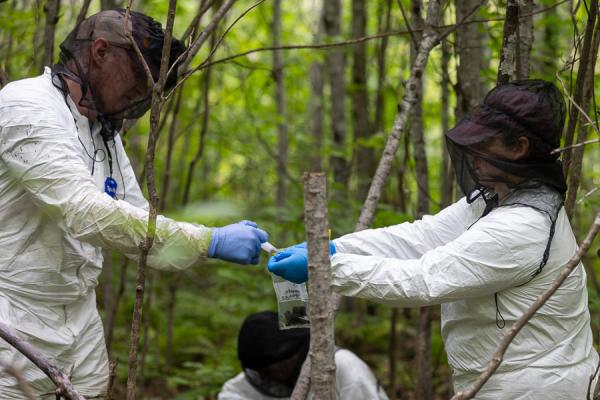Chromobacterium strains the herd
January 6, 2023

In a recent study, CVM researchers including Dr. Sagar Goyal, Dr. Sunil Mor, and Dr. Vikash Singh examined a strain of Chromobacterium violeceum, a rare but fast-spreading disease that is fatal in elephants that has the potential to be fatal in humans as well. Currently, India is home to over half of the global elephant population. But human development and rapid climate change have compromised large areas of their natural habitats, causing elephant populations to decline and increasing their exposure to a host of risks, including pathogens like C. violaceum.
The researchers completed a postmortem examination and whole genome sequencing (WGS) of an elephant calf in India that died from C. violaceum infection, which it had likely contracted from ingesting contaminated water or from soil through a skin injury. The examination provided confirmation of—and new insights into—how the disease manifests and impacts bodily systems, and WGS enabled the researchers to identify the full unique fingerprint of the virus and gain a better understanding of its behavior, including its potential susceptibility or resistance to various treatment approaches. The findings contribute knowledge that will help with early identification and targeted treatment, which are crucial for survival.
As our world continues to change rapidly in ways that create new health risks for these animals, research like this is crucial to understanding how to help them live healthy lives in their natural habitats. With a high likelihood of this fatal disease increasing in elephants and other hosts, more research will be necessary to help them survive and thrive into the future, and to keep humans safeguarded from disease as well.
Read the full article in SpringerLink.


